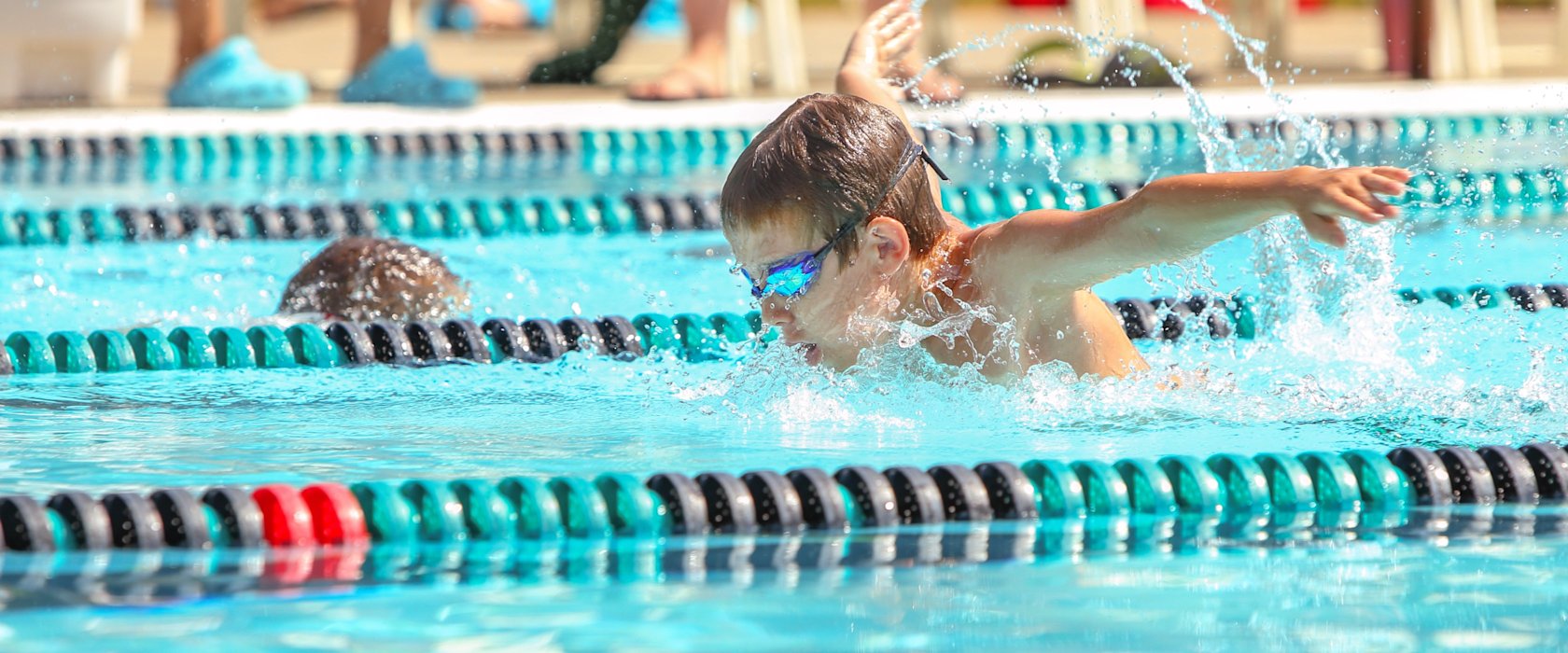Coronavirus (COVID-19) Updates
For the latest COVID-19 information and updates from Qatar Foundation, please visit our Statements page

According to mental health experts, parents and coaches should respect the goals that a young athlete sets for themselves, instead of worrying about winning competitions.
Image source: Suzanne Tucker, via ShutterstockOn World Mental Health Day, Rima Kizilgun, a sports coach within QF, and Dr. Ahsan Nazeer, Division Chief of Child and Adolescent Mental Health at Sidra Medicine, speak about the fine line between pressure and motivation in sports
At the Tokyo 2020 Olympic Games the world's attention turned to sports champions like Simone Biles and Naomi Osaka. Their abrupt withdrawal from the Games pulled everyone’s attention to a very important topic – mental health.
And although Biles and Osaka walked away from their matches, Soviet gymnast Elena Mukhina wasn’t so lucky. Ahead of the Moscow 1980 Olympic Games, Mukhina had requested to withdraw as she needed time to recuperate from an injury. Unfortunately, her request was denied.
Mukhina rushed her healing time to prep for the Games. And in a training session, while performing one of the most challenging moves in her routine, her life changed forever. She fell on her chin, broke her neck and crushed her cervical vertebrae. An accident that left her paralyzed for the rest of her life.

Dr. Ahsan Nazeer, Division Chief of Child and Adolescent Mental Health at Sidra Medicine.
The comparison between both scenarios – from 1980 to 2021 – shows how far the awareness of mental health among athletes, sports committees, and the international society has evolved in the last three decades.
Rima Kizilgun, a former gymnast, and currently an international judge for Gymnastics, a gymnastics coach who trains adults and children within the Qatar Foundation (QF) community, and President of the Technical Committee (for Coaches and Judges) in the Asian Gymnastics Union, agrees that terms like “mental blocks” and “burn-out syndrome” have become widely known to coaches and trainers.
Mental blocks’ and ‘burn-out syndrome’ have become widely known to coaches and trainers
“When an athlete is suffering from such forms of mental stress, it’s translated into not being able to perform even a basic element they are used to performing on a daily basis.
“For example, a gymnast might suddenly feel incapable of performing a back flip, something that they used to perform daily. This is because of a lack of coordination between the body and the brain,” said Kizilgun.
Kizilgun had been among the judges’ jury in the Olympic Games in Rio in 2016 and has been judging top athletes including American gymnast Simone Biles.
Dr. Ahsan Nazeer, Division Chief of Child and Adolescent Mental Health at QF’s Sidra Medicine, explained how sports in children’s routines are increasingly changing from being a leisurely activity to being competitive with an intense year-round training schedule.
Nowadays, children in their schooling years have grueling training regimens, and their participation in their schools’ teams is result-driven
“Nowadays, children in their schooling years have grueling training regimens, and their participation in their schools’ teams is result-driven. To reach new heights, they face greater and greater expectations from parents and coaches to do better than their predecessors,” Dr. Nazeer said.
He added that while it is difficult to estimate the negative impact of mental health in competitive sports, given that only a few professional athletes speak out because of the stigma attached to mental health, among children the benefits of mental wellbeing may get offset by mental health issues that are unique to competitive sports.
When a child trains rigorously and their efforts do not translate into the expected results, they experience chronic stress that leads to decreased performance in sports
"When a child trains rigorously and their efforts do not translate into the expected results, they experience chronic stress that leads to decreased performance in sports,” Dr Nazeer said. These children may display poor self-esteem, show irritability, have sad moods, become isolated from family and friends from the fear of disappointing their parents, and worry about future competitions and their poor performance.
“This explains why up to 70 percent of children drop out of organized sports by the age of thirteen, according to the American Academy of Pediatrics,” Dr. Nazeer said.
Having been an athletic child herself, and now a coach for other children, Kizilgun emphasized that for a child to benefit from sports, they should have fun while learning, and enjoying what they are doing. And they must have the will to be involved in the sport they are practicing.
I try to encourage them by trying different methods, skills, games. I try to dive into their inner world to discover the missing chain and mentally motivate them
“In my classes, sometimes I face situations where I train children who are not interested in the sport,” she said. “First, I try to encourage them by trying different methods, skills, games. I try to dive into their inner world to discover the missing chain and mentally motivate them.
“If none of these work at all, I advise the parents to allow their children to try another sport. Because it is crucial to love and enjoy what they are doing. After all, it is a big factor in gaining success besides individual capacities and abilities,” Kizilgun said.
According to Dr. Nazeer, it is important for parents to understand and identify the fine line between parental pressure and motivation or encouragement. Parental pressure may result in one child performing their best, but for another, it may lead them to simply quit because the goal is “unachievable.”
“The high amount of stress and pressure can lead to depression and other mental illnesses. Young athletes may feel pressure to continue practicing, thus putting themselves at risk of injuries and long-term disability,” Dr. Nazeer said.
“Parents and coaches should respect the goals that a young athlete sets for themselves. Instead of worrying about winning competitions, parents and coaches should concentrate on the game and on skill development.

Rima Kizilgun, a former gymnast, international judge for gymnastics, and a gymnastics coach at Qatar Foundation.
“They may disagree with what the child wants, but they should display the flexibility to allow their children to make some of their own decisions. Parents should also keep a check for indicators of depression or anxiety, such as significant changes in sleeping or eating patterns,” he added.
He also stressed that athletes need to be open and honest about their aspirations, including how to be assertive in communication, and learn strategies to deal with stress from competitions.
“Parents as well as coaches should communicate with the intent to listen to their athlete children and students,” he said.
“They should ask open-ended questions to encourage children to share their feelings. Addressing topics such as how children can handle the stress of team dynamics or a competition can lead to fruitful discussions.”

